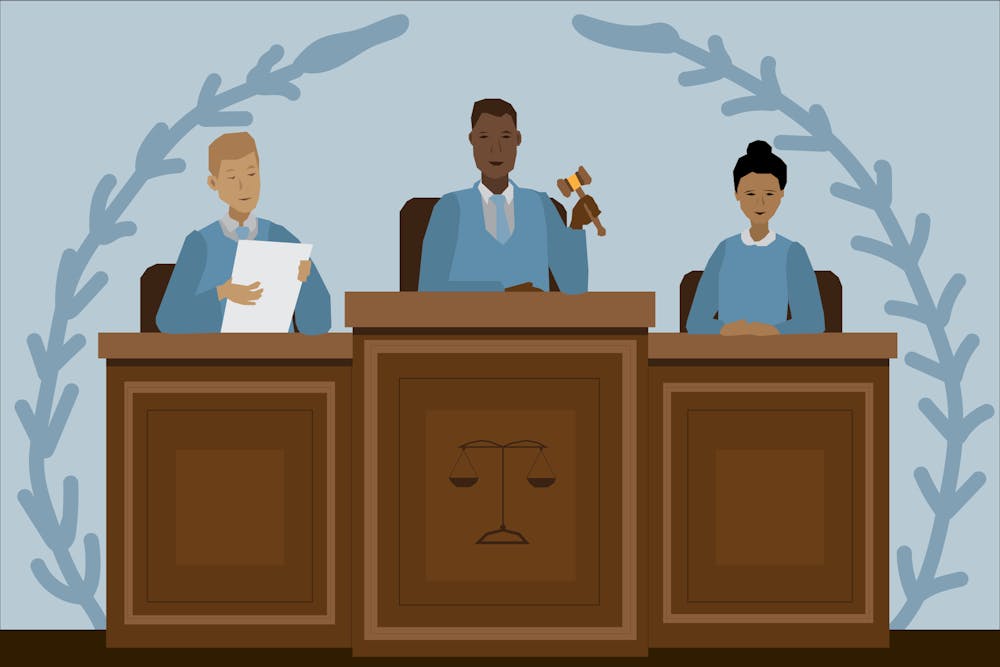The UNC Student Supreme Court, established in 1966, is the branch of student government that acts as a last resort for all student body disputes.
SSC Chief Justice Nathaniel Shue said the SSC ensures student government actions align with the University’s constitutional principles and handles issues within and about registered student organizations, non-discrimination policy complaints and student constitutional interpretation.
Graduate Student Justice Andrew Gary said that most of the Court’s complaints are related to the UNC Constitution, the Student Code, Undergraduate General Statues and the Code of the Graduate and Professional Student Government.
“If there is some kind of violation of the law, violation of the rights students have under the Constitution or just someone feels as though they’ve been generally treated unfairly, they can bring a complaint to the Court, and we will hear the complaint,” Gary said.
The Student Supreme Court consists of three undergraduate justices and two graduate or professional student justices, Shue said. Members are nominated by either the Student Body President or the Graduate and Professional Student Government President. The nominees are then confirmed by UNC’s constituency Senate and then by the Joint Governance Council.
In addition, four students also serve as clerks for the SSC.
Shue said justices usually do, but are not required to, have student government experience prior to joining the SSC.
He also said the SSC operates ad-hoc, meaning semesters without the Spring General Elections are typically quiet. This semester has been particularly busy, he said, with nine cases having been decided thus far.
The SSC's six major areas of jurisdiction include summoning defendants to appear before the Court, subpoenaing witnesses or evidence, issuing writs of mandamus, issuing temporary restraining orders, enforcing decisions by mandatory or prohibitory injunction and enforcing decisions by the Honor Code.




